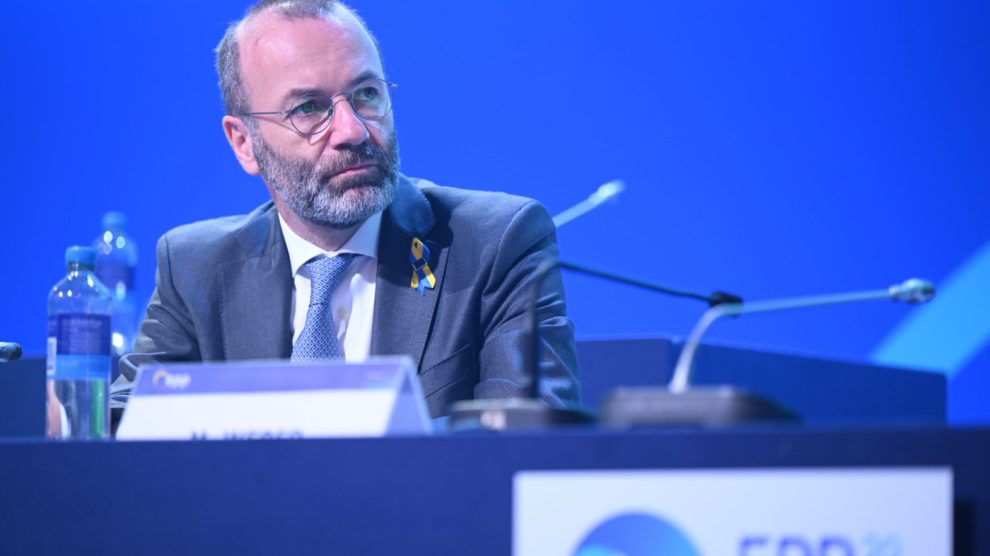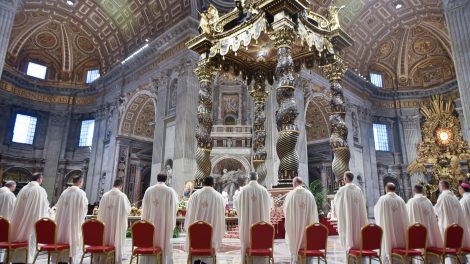Weber weighs in on the migrant issue. Italy can’t be left on its own to cope with migrants, said the head of the European People’s Party, Manfred Weber, on Friday. He was in Rome, meeting with Prime Minister Giorgia Meloni, whose right-wing government is tussling with France’s own over the matter.
- “Italy and France must find a common agreement on the great challenges ahead of us, and everyone must respond to the challenge of migration,” he added. “What we need is a European solution. We do not need battles between Italy and France or other countries.”
- Mr Weber’s solution entails “strict and strong border controls, as we did at the border between Turkey and Greece;” and solidarity. “Italy cannot be left alone; we must show solidarity at the European level,” said the EPP head.
What sparked the fire? The Italian authorities have begun clashing with non-governmental organisations attempting to disembark rescued refugees, although it allowed three to disembark in the past few days. Rome also announced that another ship, the Ocean Viking, would dock in France.
- However, the French government – which had never before allowed a rescue vessel carrying migrants from the Mediterranean to land on its coast – had reportedly not agreed on the relocation.
France gets mad. On Tuesday, Interior Minister Gerald Darmanin said that the migrants were Italy’s responsibility under EU rules and that the French move was an “exceptional” measure. He also called Italy’s rejection of migrants “incomprehensible” and said there would be “severe consequences” for Rome’s bilateral relations with Paris and the EU. Then he cancelled the planned relocation of 3,500 migrants from Italy and urged other EU members to do the same.
- On Friday, PM Meloni condemned France’s “aggressive reaction” and noted that France’s criticism was “incomprehensible and unjustified.”
The name of the game: Dublin Treaty. As Foreign Minister Antonio Tajani said this week, Italy believes other nations must shoulder more of the burden for taking in the migrants. As he explained on several occasions, the European Parliament had clearly voted for the revision of the Dublin Treaty (which regulates intra-EU migrant relocation), but the EU’s Council – i.e. member States – never ratified it.
- President Sergio Mattarella called for “shared choices” within the EU in a speech during his State visit to the Netherlands – which marked 30 years after the signing of the historic European Treaty. “The response to the migration challenge will only be successful if it is supported by the criteria of solidarity within the Union and cohesion in the external response and by a far-sighted policy towards the African region,” he added.
To reform or not to reform. Referring to the never-revised Dublin Treaty, former Defence Minister Mario Mauro told our sister site Formiche.net that “there is a hiatus between those who support the ideal nature of the parties’ position and those who instead stop at the reason of state.” He also noted that PM Meloni should talk to the European political families as well as the governments to achieve a meaningful impact.
Balances in the European Parliament. Ms Meloni is head of the European Conservatives and Reformists party, but some believe her more moderate rebranding has brought her closer, politically speaking, to the EPP. Still, Deputy Minister for Business Valentino Valentini (whose party, Forza Italia, is part of the EPP) argued that this dialogue wouldn’t result in a merger.
- Rather, he told our sister site, Mr Weber’s words are “an invitation aimed at finding a point of equilibrium that strengthens the relationship between the EPP and the ECR – which, after all, was part of the coalition that elected Mr Tajani as President of the European Parliament.”
Or is it about something else entirely? “The spat was opened by France, which was looking for an excuse to send a signal of annoyance to Italy. Rome is making choices that Paris did not expect in the fields of military industry, geopolitics and relations with Germany, with which France has a very strong divergence,” commented the economist and academic Carlo Pelanda.
- He believes Paris is not happy with Rome’s positioning in the space industry and its greater convergence with Berlin. “France is indeed an important customer, but the systems of Rome and Berlin are complementary on the industrial level,” he told our sister site.
- Also, Italy and Germany “need to have a strong relationship with the United States, while France always tends to put up a stronger barrier on these Atlantic relations. So it is obvious that Italy tends to converge more with Germany than with France.”





